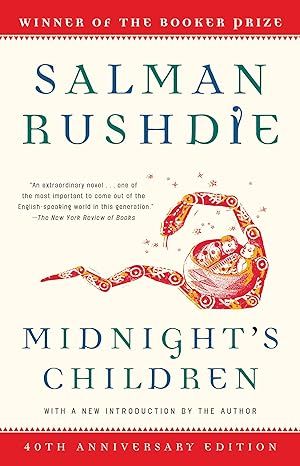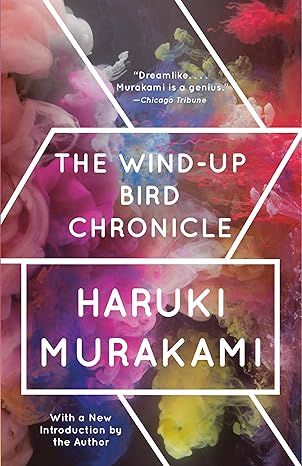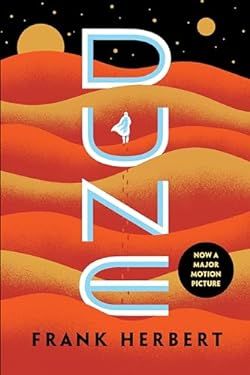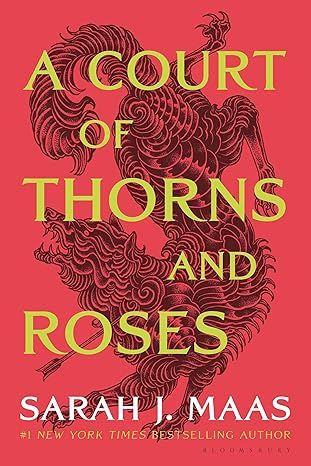Midnight's Children: A Novel (Modern Library 100 Best Novels)
4.3
-
6,153 ratings
The iconic masterpiece of India that introduced the world to “a glittering novelist—one with startling imaginative and intellectual resources, a master of perpetual storytelling” (The New Yorker)
WINNER OF THE BEST OF THE BOOKERS • SOON TO BE A NETFLIX ORIGINAL SERIES
Selected by the Modern Library as one of the 100 best novels of all time • The fortieth anniversary edition, featuring a new introduction by the author
Saleem Sinai is born at the stroke of midnight on August 15, 1947, the very moment of India’s independence. Greeted by fireworks displays, cheering crowds, and Prime Minister Nehru himself, Saleem grows up to learn the ominous consequences of this coincidence. His every act is mirrored and magnified in events that sway the course of national affairs; his health and well-being are inextricably bound to those of his nation; his life is inseparable, at times indistinguishable, from the history of his country. Perhaps most remarkable are the telepathic powers linking him with India’s 1,000 other “midnight’s children,” all born in that initial hour and endowed with magical gifts.
This novel is at once a fascinating family saga and an astonishing evocation of a vast land and its people–a brilliant incarnation of the universal human comedy. Forty years after its publication, Midnight’s Children stands apart as both an epochal work of fiction and a brilliant performance by one of the great literary voices of our time.
Kindle
$13.99
Available instantly
Audiobook
$0.00
with membership trial
Hardcover
$23.36
Paperback
$13.69
Ships from
Amazon.com
Payment
Secure transaction
ISBN-10
9780812976533
ISBN-13
978-0812976533
Print length
536 pages
Language
English
Publisher
Random House Publishing Group
Publication date
April 03, 2006
Dimensions
5.16 x 1.23 x 8.01 inches
Item weight
14 ounces
Popular Highlights in this book
To understand just one life, you have to swallow the world. I told you that.
Highlighted by 575 Kindle readers
India, the new myth – a collective fiction in which anything was possible, a fable rivalled only by the two other mighty fantasies: money and God.
Highlighted by 535 Kindle readers
I learned: the first lesson of my life: nobody can face the world with his eyes open all the time.
Highlighted by 332 Kindle readers
Product details
ASIN :
0812976533
File size :
3184 KB
Text-to-speech :
Enabled
Screen reader :
Supported
Enhanced typesetting :
Enabled
X-Ray :
Enabled
Word wise :
Enabled
Editorial Reviews
“In Salman Rushdie, India has produced a glittering novelist—one with startling imaginative and intellectual resources, a master of perpetual storytelling.”—The New Yorker
“A marvelous epic . . . Rushdie’s prose snaps into playback and flash-forward . . . stopping on images, vistas, and characters of unforgettable presence. Their range is as rich as India herself.”—Newsweek
“Burgeons with life, with exuberance and fantasy . . . Rushdie is a writer of courage, impressive strength, and sheer stylistic brilliance.”—The Washington Post Book World
“Pure story—an ebullient, wildly clowning, satirical, descriptively witty charge of energy.”—Chicago Sun-Times
“This brash, knowing, massive, aggressive novel is to modern India what Günter Grass’s The Tin Drum is to modern Germany.”—The New York Times Book Review
“Dazzling . . . In combining past with present, nostalgic realism with mythic overtones, specific detail with complex and binding narrative devices, Rushdie has achieved a magnificent and unique work of fiction.”—The Philadelphia Inquirer
Sample
The Perforated Sheet
I WAS BORN in the city of Bombay … once upon a time. No, that won’t do, there’s no getting away from the date: I was born in Doctor Narlikar’s Nursing Home on August 15th, 1947. And the time? The time matters, too. Well then: at night. No, it’s important to be more … On the stroke of midnight, as a matter of fact. Clock-hands joined palms in respectful greeting as I came. Oh, spell it out, spell it out: at the precise instant of India’s arrival at independence, I tumbled forth into the world. There were gasps. And, outside the window, fireworks and crowds. A few seconds later, my father broke his big toe; but his accident was a mere trifle when set beside what had befallen me in that benighted moment, because thanks to the occult tyrannies of those blandly saluting clocks I had been mysteriously handcuffed to history, my destinies indissolubly chained to those of my country. For the next three decades, there was to be no escape. Soothsayers had prophesied me, newspapers celebrated my arrival, politicos ratified my authenticity. I was left entirely without a say in the matter. I, Saleem Sinai, later variously called Snotnose, Stainface, Baldy, Sniffer, Buddha and even Piece-of-the-Moon, had become heavily embroiled in Fate—at the best of times a dangerous sort of involvement. And I couldn’t even wipe my own nose at the time.
Now, however, time (having no further use for me) is running out. I will soon be thirty-one years old. Perhaps. If my crumbling, overused body permits. But I have no hope of saving my life, nor can I count on having even a thousand nights and a night. I must work fast, faster than Scheherazade, if I am to end up meaning—yes, meaning— something. I admit it: above all things, I fear absurdity.
And there are so many stories to tell, too many, such an excess of intertwined lives events miracles places rumors, so dense a commingling of the improbable and the mundane! I have been a swallower of lives; and to know me, just the one of me, you’ll have to swallow the lot as well. Consumed multitudes are jostling and shoving inside me; and guided only by the memory of a large white bedsheet with a roughly circular hole some seven inches in diameter cut into the center, clutching at the dream of that holey, mutilated square of linen, which is my talisman, my open-sesame, I must commence the business of remaking my life from the point at which it really began, some thirty-two years before anything as obvious, as present, as my clock-ridden, crime-stained birth.
(The sheet, incidentally, is stained too, with three drops of old, faded redness. As the Quran tells us: Recite, in the name of the Lord thy Creator, who created Man from clots of blood.)
One Kashmiri morning in the early spring of 1915, my grandfather Aadam Aziz hit his nose against a frost-hardened tussock of earth while attempting to pray. Three drops of blood plopped out of his left nostril, hardened instantly in the brittle air and lay before his eyes on the prayer-mat, transformed into rubies. Lurching back until he knelt with his head once more upright, he found that the tears which had sprung to his eyes had solidified, too; and at that moment, as he brushed diamonds contemptuously from his lashes, he resolved never again to kiss earth for any god or man. This decision, however, made a hole in him, a vacancy in a vital inner chamber, leaving him vulnerable to women and history. Unaware of this at first, despite his recently completed medical training, he stood up, rolled the prayer-mat into a thick cheroot, and holding it under his right arm surveyed the valley through clear, diamond-free eyes.
The world was new again. After a winter’s gestation in its eggshell of ice, the valley had beaked its way out into the open, moist and yellow. The new grass bided its time underground; the mountains were retreating to their hill-stations for the warm season. (In the winter, when the valley shrank under the ice, the mountains closed in and snarled like angry jaws around the city on the lake.)
In those days the radio mast had not been built and the temple of Sankara Acharya, a little black blister on a khaki hill, still dominated the streets and lake of Srinagar. In those days there was no army camp at the lakeside, no endless snakes of camouflaged trucks and jeeps clogged the narrow mountain roads, no soldiers hid behind the crests of the mountains past Baramulla and Gulmarg. In those days travellers were not shot as spies if they took photographs of bridges, and apart from the Englishmen’s houseboats on the lake, the valley had hardly changed since the Mughal Empire, for all its springtime renewals; but my grandfather’s eyes—which were, like the rest of him, twenty-five years old—saw things differently … and his nose had started to itch.
To reveal the secret of my grandfather’s altered vision: he had spent five years, five springs, away from home. (The tussock of earth, crucial though its presence was as it crouched under a chance wrinkle of the prayer-mat, was at bottom no more than a catalyst.) Now, returning, he saw through travelled eyes. Instead of the beauty of the tiny valley circled by giant teeth, he noticed the narrowness, the proximity of the horizon; and felt sad, to be at home and feel so utterly enclosed. He also felt—inexplicably—as though the old place resented his educated, stethoscoped return. Beneath the winter ice, it had been coldly neutral, but now there was no doubt; the years in Germany had returned him to a hostile environment. Many years later, when the hole inside him had been clogged up with hate, and he came to sacrifice himself at the shrine of the black stone god in the temple on the hill, he would try and recall his childhood springs in Paradise, the way it was before travel and tussocks and army tanks messed everything up.
On the morning when the valley, gloved in a prayer-mat, punched him on the nose, he had been trying, absurdly, to pretend that nothing had changed. So he had risen in the bitter cold of four-fifteen, washed himself in the prescribed fashion, dressed and put on his father’s astrakhan cap; after which he had carried the rolled cheroot of the prayer-mat into the small lakeside garden in front of their old dark house and unrolled it over the waiting tussock. The ground felt deceptively soft under his feet and made him simultaneously uncertain and unwary. “In the Name of God, the Compassionate, the Merciful …”—the exordium, spoken with hands joined before him like a book, comforted a part of him, made another, larger part feel uneasy—“… Praise be to Allah, Lord of the Creation …”—but now Heidelberg invaded his head; here was Ingrid, briefly his Ingrid, her face scorning him for this Mecca-turned parroting; here, their friends Oskar and Ilse Lubin the anarchists, mocking his prayer with their anti-ideologies—“… The Compassionate, the Merciful, King of the Last Judgment! …”—Heidelberg, in which, along with medicine and politics, he learned that India—like radium—had been “discovered” by the Europeans; even Oskar was filled with admiration for Vasco da Gama, and this was what finally separated Aadam Aziz from his friends, this belief of theirs that he was somehow the invention of their ancestors—“… You alone we worship, and to You alone we pray for help …”—so here he was, despite their presence in his “head, attempting to reunite himself with an earlier self which ignored their influence but knew everything it ought to have known, about submission for example, about what he was doing now, as his hands, guided by old memories, fluttered upwards, thumbs pressed to ears, fingers spread, as he sank to his knees—“… Guide us to the straight path, The path of those whom You have favored …” But it was no good, he was caught in a strange middle ground, trapped between belief and disbelief, and this was only a charade after all—“… Not of those who have incurred Your wrath, Nor of those who have gone astray.” My grandfather bent his forehead towards the earth. Forward he bent, and the earth, prayer-mat-covered, curved up towards him. And now it was the tussock’s time. At one and the same time a rebuke from Ilse-Oskar-Ingrid-Heidelberg as well as valley-and-God, it smote him upon the point of the nose. Three drops fell. There were rubies and diamonds. And my grandfather, lurching upright, made a resolve. Stood. Rolled cheroot. Stared across the lake. And was knocked forever into that middle place, unable to worship a God in whose existence he could not wholly disbelieve. Permanent alteration: a hole.
The young, newly-qualified Doctor Aadam Aziz stood facing the springtime lake, sniffing the whiffs of change; while his back (which was extremely straight) was turned upon yet more changes. His father had had a stroke in his absence abroad, and his mother had kept it a secret. His mother’s voice, whispering stoically: “… Because your studies were too important, son.” This mother, who had spent her life housebound, in purdah, had suddenly found enormous strength and gone out to run the small gemstone business (turquoises, rubies, diamonds) which had put Aadam through medical college, with the help of a scholarship; so he returned to find the seemingly immutable order of his family turned upside down, his mother going out to work while his father sat hidden behind the veil which the stroke had dropped over his brain … in a wooden chair, in a darkened room, he sat and made bird-noises. Thirty different species of birds visited him and sat on the sill outside his shuttered window conversing about this and that. He seemed happy enough.
Read more
About the authors
Salman Rushdie
Sir Salman Rushdie is the author of many novels including Grimus, Midnight's Children, Shame, The Satanic Verses, The Moor's Last Sigh, The Ground Beneath Her Feet, Fury and Shalimar the Clown. He has also published works of non-fiction including The Jaguar Smile, Imaginary Homelands, The Wizard of Oz and, as co-editor, The Vintage Book of Short Stories.
Read more
Reviews
Customer reviews
4.3 out of 5
6,153 global ratings
Aran Joseph Canes
5
A World, An Epic, A History
Reviewed in the United States on April 22, 2023
Verified Purchase
Midnight’s Children could be called a not so distant cousin of A Thousand Years of Solitude. It stands on its own, of course, but what I mean is that there is a world, an epic, a history all inscribed within the pages of both novels. Faulkner’s Yoknapatawpha County would be an American equivalent.
Midnight’s Children is regarded as so essential to Indian literature that South Asian critics regularly describe eras as pre and post Rushdie.
If you haven’t read it, it tells the story of India, from just before Independence into the Indira Gandhi era, through the allegorical fictional events that occur to its protagonist. As a conceit, it’s brilliant —both in terms of originality and execution.
Those who remember or know about this era in Indian history will not be surprised by its cynical tone. Everything from Indian religions to politics to the economy is subject to subtle, and not so subtle, ridicule. Perhaps if Rushdie were to write about India in the twenty first century this would have been a completely different work.
But as Rushdie says, the temptation to write history as we wish and not how it was is simply that—a temptation. The difficult beginnings of the modern Indian state cannot be swept under the proverbial rug.
However, it’s a book worth reading beyond those interested in South Asian studies. The play between the disasters of the hero and the disasters of India actually reach beyond the subcontinent to achieve universal resonance. I personally didn’t like the digs at religion and the dark humor employed in describing mass suffering, but these are matters on which mature readers will differ. Paradoxically, I believe, that as India becomes a richer and more powerful nation, this work describing the trauma of its youth will become only more and more important. It doesn’t need any props from me, but still highly recommended.
Read more
27 people found this helpful
Junior Bonner
5
Flies like a butterfly, hits like a cannonball
Reviewed in the United States on June 2, 2013
Verified Purchase
Having red the "Satanic Verses" a few years ago I definitely waited too long to pick up "The Midnigt's Children". For anybody who can appreciate the literature and prefers a gourmet meal to chicken fried steak- stop reading reviews and start this book right now- it is a masterpiece.
BTW - to those who give it three stars or fewer- I can only hope that they write something better and show us what a good novel should be- forgive my sarcasm.
Initially the book may not be the easiest too read, as although the story is told mostly in chronological manner, it is interwoven with obscure at the time glimpses of the future. In Rushdie's world everything is connected, no thing is too small or inconsequential. Ideas, objects and small events initially loosely connected shape Saleem's life. As the story develops everything starts coming together, making sense, no longer obscure. Therefore the book becomes easier and easier to read and even more engaging the further you get into it.
The reality and fantasy are tied together in this novel- typically for this author, fantasy serves to highlight and magnify the reality.
The life of the protagonist, Saleem Sinai is magically tied to the life of the nation as he is born in the exact moment when India is born as a nation independent from the British rule. In the same hour 1000 of other children possessing supernatural abilities are born in India.
Some say that the idea of magical children is not fully utilized by the author or perhaps even unnecessary, as the reality of the times is captivating enough. This is debatable, but in any case don't expect the magical children fighting villains, this is not Avengers or Fantastic 4. The extraordinary abilities of the children are more a curse and a source of misfortunes than they are a blessing as the world is not ready for them.
Superstition, backwardness of the adults, causes them to pass the suffering on the children. The adults "make children the vessels into which they pour their poisons" of unhappiness, prejudice and intolerance. As the protagonist grows up, the insults from surrounding him adults and his own peers are replaced by much worse mayhem unleashed on him and the whole nation by the politicians and tyrants.
As such the broken life and body of the midnight's child becomes a mirror of what happens to the fractured nation, divided by languages, religions and political ambitions. In this aspect the novel is a powerful accusation and the author takes no prisoners, historical figures even the reverend ones come under the fire of his literary weapons. Even though the optimism of the people is shown as a disease and completely unjustified the author leaves room for a sliver of hope- symbolized by the little Aadam.
The use of visions, prophecies, colors, objects loaded with meanings, historical events and psychological insights along with rich and almost poetic prose create a book that is full of impact and should not be passed.
Read more
11 people found this helpful
The Honest Conn Man
5
Exceptional Writing
Reviewed in the United States on August 21, 2018
Verified Purchase
It's taken me all this time to pick up my first Salmon Rushdie novel. What a writer and what an imagination!
The writing is brilliant -- fun, humorous, fantastical, entertaining, ambitious and meticulous. I, alas, fall far short of being a brilliant writer, so I'm not going to be able to capture the magic of his writing for you. But, I can give you a great tip: sample this book. Now. Just do it. Amazon will let Prime Customers (all customers??) download a sample that will either have you in agreement or waste a small amount of your time.
Do yourself a favor. Just do it. It will cost you nothing and may well prove to be for you what it has been for me -- a memorable and sublime reading experience.
You read this all the way through. Silly you. You could have been reading "Midnight's Children." I read the first chapter aloud to my wife. This second reading pleased her and showed me how much I had missed on my first reading. I put this book right up there with my favorites: Catch-22 (deadly serious and uproariously funny), almost anything by Mark Twain, The Magus (a page-turner that delivered) , The Sound and the Fury, Harry the Rat with Women (a perfect short novel), The Stranger, Interview with a Vampire (the last chapter wowed me), The Naked and the Dead, the fast-paced novels of David Morrell, the wise-cracking investigator of Plum Island, and War and Peace (which I probably would never have read had it not been for a course). And, darn it, I know I've left out many others that I've found exceptional for one reason or another -- such as much of Saul Bellows, Shogun (which blind-sided me by turning around my first impressions when I wasn't looking) The Grapes of Wrath (with its innumerable outstanding vignettes), Our Town (my favorite play, especially with Hal Holbrook in his finest performance) and . . .
Read more
62 people found this helpful
Rebecca. Friedman
4
Epic in scope, brilliant and flawed
Reviewed in the United States on September 2, 2015
Verified Purchase
Although Midnight’s Children is proclaimed as Rushdie’s masterpiece, I did not enjoy it as much as I did Shalimar the Clown. It’s epic in its scale and ambition. There is so much here it may be difficult for some readers (myself included) to digest it all. There are a staggering number of minor characters, all realized with Rushdie’s customary skill. There are many passages of brilliance, wit, and wisdom. But these multitudinous characters slither in and out of the narrative making it difficult at times to follow, particularly considering that a novel of this length and complexity does not lend itself to a reading of one, or even just a few sittings. It is in the form of a three-volume “confession” by the narrator, Saleem Sinai, who is born at the exact midnight moment of India’s birth as a nation (hence the novel’s title), to his consort and fiancé, Padma. To add to the difficulties many of the characters have multiple names.
Rushdie employs some literary devices that detracted from my enjoyment of the novel. At times it almost seemed as if he was indulging in technique for technique’s sake. One device is repetition. For instance, there’s constant thematic repetition of “knees and nose, nose and knees”, Saleem being the nose and his arch-enemy and rival, Shiva, being the knees. After a while my response was I get it, their fates are intertwined, but I don’t get why I need to read this formula yet again (maybe I don’t get it? I’m not even quite sure why the formula couldn’t be reversed. Are knees aggressive and the nose sensuous? A lot of hammering on one nail.) Another is Rushdie’s use of obscure vocabulary without any clear purpose that I can understand (even when I understand the words without looking them up). For example the words apocrine and eccrine keep popping up in the narrative without any clear reference (at least to me).
Another problem I had, particularly with Volume 3 (spoiler alert – don’t read further if you want to remain in suspense), is where we learn of the identity of “the Widow”, who is the villain of the piece. It’s Indira Gandhi. The anti-Gandhi theme introduced here seems a bit overheated. Although Indira Gandhi did do some bad things, particularly the suspension of democracy during the “Emergency” of 1975-77, which is the background for a significant part of Volume 3, they seem pretty small beer when compared with the great historical crimes of the twentieth century. In fact she seems not obviously better or worse than many of the Prime Ministers India has experienced before and afterwards. So the tone of outrage and focus on her as the villainous “Widow”, while it may have been understandable from Rushdie’s perspective at the time Midnight’s Children was completed (1979), seems rather dated.
All that said it would be unfair not to note that there are many passages in Midnight’s Children of great beauty and wisdom. Rushdie is unparalleled in capturing the sweep of life in India and Pakistan (and Bangladesh) and his genius for this is at its most expressive in this novel. He is also a writer of great learning and knowledge of what he writes -- knowledge which is fully on display here (in a good sense). The Bombay of which he writes is the Bombay of his own childhood; he himself was born in 1947, the year of India’s independence, the same as Saleem, the “hero” of the piece. Along the way, he gives us all sectors of Indian society, from the wealthy and privileged to the underclasses, and he does it with a true novelist’s eye (and nose!) for the telling detail and without editorializing. He succeeds in interweaving the private incidents in the lives of the characters he has created with historical events of the period: from the early part of the twentieth century to the late 70s, when the book was completed. It’s just a shame that because of their sheer number we don’t get to know some of them better. But maybe that’s inherent in Rushdie’s method; he himself has acknowledged his debt to Charles Dickens, and I guess one should no more expect to probe the depths of Nussie the Duck’s or Parvati-the-Witch’s psyches any more than those of Mr. Micawber or “Barkis is willing”.
Read more
22 people found this helpful
krebsman
3
Ambitious, but too long
Reviewed in the United States on August 1, 2003
Verified Purchase
I had never read any of Salman Rusdie's work until this novel. (I was told this was a good place to start with Rushdie.) I admired very much the ambition of MIDNIGHT'S CHILDREN. Rushdie is to be commended for trying to write a great book. He almost did it. The first half is really vivid and enthralling. Rushdie's prose is truly winged. However, somewhere about halfway through the novel (about the time the narrator leaves Pakistan), I lost interest and the rest of the book became a chore to finish. There really wasn't much of a payoff either, considering all the time invested in reading such a thick book. I think MIDNIGHT'S CHILDREN would have been a much stronger book had it been pruned by at least a third. There were also too many loose ends for my taste. I'm glad I read the book though, and I think I have a pretty good idea of Rushdie's strengths and weaknesses as a writer now. It's not a bad book, but it's far from being a masterpiece.
Read more
12 people found this helpful
Similar Books
Best Sellers

The Great Alone: A Novel
4.6
-
152,447
$5.49

The Four Winds
4.6
-
156,242
$9.99

Winter Garden
4.6
-
72,838
$7.37

The Nightingale: A Novel
4.7
-
309,637
$8.61

Steve Jobs
4.7
-
24,596
$1.78

Iron Flame (The Empyrean, 2)
4.6
-
164,732
$14.99

A Court of Thorns and Roses Paperback Box Set (5 books) (A Court of Thorns and Roses, 9)
4.8
-
26,559
$37.99

Pretty Girls: A Novel
4.3
-
88,539
$3.67

The Bad Weather Friend
4.1
-
34,750
$12.78

Pucking Around: A Why Choose Hockey Romance (Jacksonville Rays Hockey)
4.3
-
41,599
$14.84

Start with Why: How Great Leaders Inspire Everyone to Take Action
4.6
-
37,152
$9.99

Tomorrow, and Tomorrow, and Tomorrow: A novel
4.4
-
95,875
$13.99

Weyward: A Novel
4.4
-
27,652
$11.99

Tom Lake: A Reese's Book Club Pick
4.3
-
37,302
$15.74

All the Sinners Bleed: A Novel
4.4
-
12,894
$13.55

The Mystery Guest: A Maid Novel (Molly the Maid)
4.3
-
9,844
$14.99

Bright Young Women: A Novel
4.2
-
8,485
$14.99

The Wager: A Tale of Shipwreck, Mutiny and Murder (Random House Large Print)
4.5
-
28,672
$14.99

Hello Beautiful (Oprah's Book Club): A Novel (Random House Large Print)
4.4
-
79,390
$14.99

Small Mercies: A Detective Mystery
4.5
-
16,923
$10.00

Holly
4.5
-
31,521
$14.99

The Covenant of Water (Oprah's Book Club)
4.6
-
69,712
$9.24

Wellness: A novel
4.1
-
3,708
$14.99

The Art Thief: A True Story of Love, Crime, and a Dangerous Obsession
4.3
-
4,805
$14.99




